There just isn’t a screening approach available that can give us everything we need when throughput is the priority. Sound familiar? For many toxicology labs, there is a misconception that compromises need to be made when it comes to high throughput drug screening....
Tags
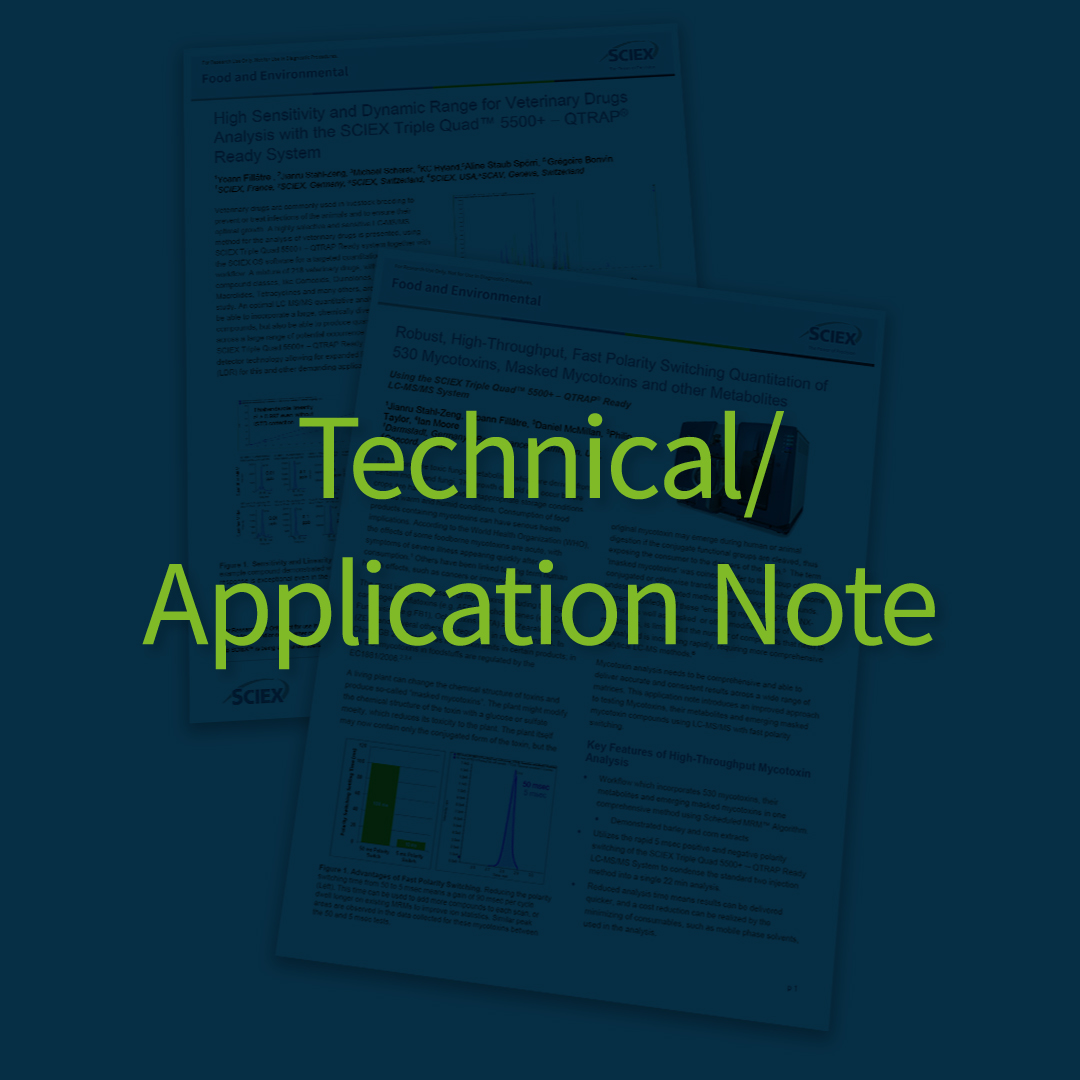
Advanced analytics for mAb variants
Access mab-variants-infokit>
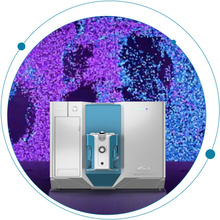
Breaking down the SCIEX Triple Quad™ 7500 LC-MS/MS System – QTRAP® Ready
Sensitivity and robustness carry different meanings in the world of mass spectrometry. Generally, sensitivity refers to an instrument’s ability to achieve lower limits of detection (LOD). Robustness, on the other hand, refers to an instrument’s ability to consistently...
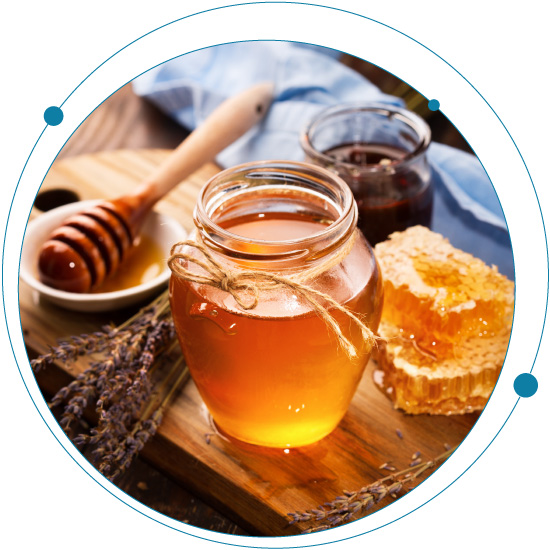
The honey sting
As a consumer it’s hard for me not to feel inundated with claims that our food is “all-natural” or “chemical-free” or that we should buy certain “superfoods” for their health benefits. We read labels and trust that the product we are buying is what we are truly...

Innovation that’s blasting through limitations in explosive detection
Mass spectrometry’s important role in identifying explosives The need for rapid explosive detection is now an unfortunate reality. The remit is multifaceted. The first is for preventative purposes, to protect us from any threat to life. The second is in the...
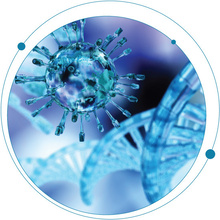
A new generation of therapeutic modalities
There are over 7,000 genetic diseases that could potentially be cured using gene therapy. Rare metabolic diseases, autoimmune disorders, cardiovascular disease and cancers are some of the top disease classes that can be addressed with gene therapies. With over 1,000...
Enhancing Biologics with CESI-MS Characterization
Comprehensive characterization of a biologic requires analysis at both the intact and digest levels, but these analyses can be complex and cumbersome. For example, with conventional liquid chromatography separations, researchers are often left with limited information...
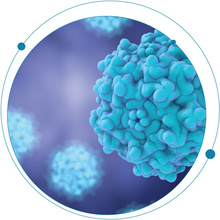
Full, partial and empty capsid ratios for AAV analysis: What’s the big deal?
For many of you working to develop gene therapy drugs, you know that the time to market the drug is critical. Because gene therapeutics cure diseases by targeting specific genes, it is a constant race to see who develops the drug first. Unlike other classes of drugs where multiple medications can be used to treat a disease, whoever is first to develop a gene therapy drug wins.
Accurate mass LC-MS/MS for PFAS analysis without needing a blockbuster budget
If you’ve been following our recent blogs, you’ve probably seen quite a bit on how per- and polyfluoroalkyl substances (PFAS) are shaking up both the food and environmental industry. Even if you’ve not been following our blogs, you’ve probably seen a lot of media...

A rising star in food allergen research: proteomics of shellfish allergen
It’s important to know what you’re eating, especially if you suffer from a food allergy.
About 220 million people worldwide live with a food allergy.1 These numbers, along with the complexity and severity of conditions, continue to rise. In America, there are about 32 million food allergy sufferers—5.6 million of those are children under the age of 18.2.2 That’s 1 out of every 13 children, or about 2 in every classroom. From a financial perspective, the cost of food allergy childcare for US families is up to $25 billion
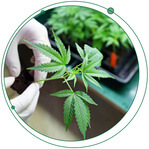
Routine cannabis screening is here. Will your lab reap the benefits?
Fast, accurate, and robust solution for routine commercial cannabis testing
As the world debates cannabis legalization for therapeutic applications and recreational use, the trends are shifting. Medicinal use of cannabis is legal in an increasing number of countries worldwide, including 33 states and the District of Columbia in the United States. Uruguay was the first country in the world to legalize the sale, cultivation, and distribution of cannabis in 2013. In the United States, Washington and Colorado were the first to fully legalize cannabis in 2012. By the end of 2019, 10 states have legalized recreational use for adults over the age of 21, with 64% of Americans favoring the move
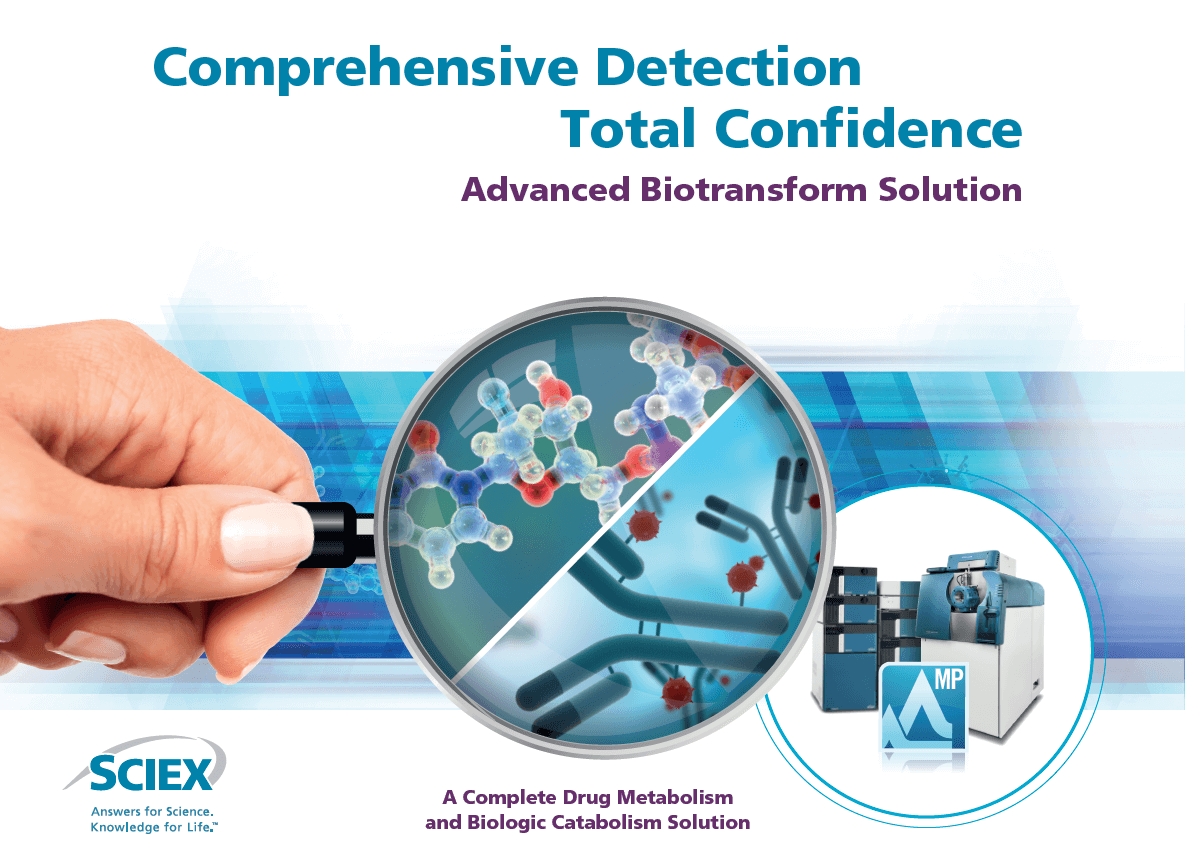
Say Goodbye to MetID Headaches, Say Hello to Automated Large Molecule Catabolism Processing
Is your mind swimming with large molecule catabolism data? Do you spend hours manually processing through complex spreadsheets to match your data with theoretical biologic catabolites? Are you wasting precious time by drawing out and processing your therapeutic peptide as a small molecule? Are you worried that you could be missing something?

Using the X500R QTOF System and SCIEX OS to Identify and Quantify Food Residues
Farmers use pesticides to protect crops from insects and disease as pesticides are necessary to create the volume of food that our population requires. Without them, we would not be able to grow enough crops to feed the world—they are a necessary evil. Government agencies such the Food and Drug Administration (FDA) in the United States and pesticide manufacturers, however, work hard to educate farmers on how to minimize their use. However, sometimes farmers add too much which leaves a residue. Upon harvest, farmers wash the fruit and vegetables. Once complete the crop then makes its way to the wholesaler and eventually, the supermarket. Even so, there may still be pesticide residue on the produce, which is why government agencies randomly pull produce from store shelves for testing of maximum residual limits (MRLs) and we are encouraged to wash our food before consuming it

The World Has its Eyes on Precision Medicine
What if we could understand and then treat diseases on an individualized level, in a way that was tuned to a person’s individual biology? Not in a futuristic, ‘wave a high-tech scanner across a person’s body’ way, but in a legitimate ’I can run a lab test and know the best action to take’ way. This is the promise of Precision Medicine, to deliver the right treatment to the right patient, at the right time, predicting more accurately which treatments will work for certain groups of patients, in contrast to the pervasive one-size-fits-all approach. More specifically, if we could provide a comprehensive report at the molecular level of an individual (based on genome, proteome, or metabolome profiles), a physician could be much better informed to make optimal treatment decisions. And if we could track these profiles over time, a person could adjust their lifestyle to focus on long-term wellness.

Setting Records with Fast Glycan Technology
There is a lot of talk going around in the lab, and it has to do with the newly released Fast Glycan Labeling and Analysis technology. Where once research analysts needed to set aside days to perform glycan analysis, now takes an hour or so. Glycans are immediately identified by the software – so no need for data interpretation. That’s up to 5x faster than HILIC.
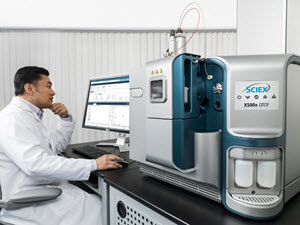
Confidently Screen For Your Usual Suspects—Plus Those That May Be Lurking Within Your Food Sample
The demand on labs throughout the world to run their triple quadrupole mass spectrometers to maximum capacity is ever increasing. Instruments are often operated continuously to ensure regulatory screening requirements are satisfied for targeted pesticides, mycotoxins, and veterinary drugs. Whether you are a commercial lab or a food manufacturer, the quality of the data you acquire is vital to your business. You must be certain that the last batch of strawberries you tested conform to pesticides regulations—your targeted list of usual suspects.
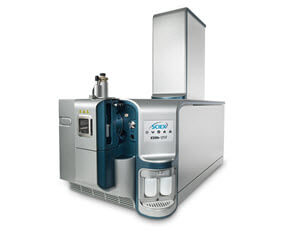
Turning up the Speed on Forensic Toxicology Screening and Quantitation
Working in a forensic lab means technicians want super high-quality data in ultra-fast time. Yet, how do you go about detecting an unlimited number of analytes without re-injecting the sample all while new targeted compounds are being added to the screened panel? In the following application note, “Ultra-Fast Forensic Toxicological Screening and Quantitation in Under 3 Minutes Using SCIEX X500R QTOF System and SCIEX OS 1.0 Software,” researchers set out to achieve a fast method that could detect an unlimited number of analytes with all information afforded mass accuracy, LC retention time, and MS/MS spectral library matching.

What Food Safety Trends are Coming This Year?
As we settle into 2017, I can’t help but reflect on the previous year’s food safety. Take for example the legislative changes meant to contain contamination outbreaks like those happening in places like China, Singapore, and New Zealand. Over the past year, we have developed new methods that detect antibiotics in poultry feed, LC-MS/MS Analysis of Emerging Contaminants, and help set food standards in China. All the while developing more sophisticated technology to keep up with testing demands.

Never Stop Learning with SCIEX University
Did you know that when you log into SCIEXUniversity, you have 24/7 access to educational tools? Simply click on the Support from SCIEX.com and select SCIEXUniversity. Here you will find more than 100 newly revamped courses developed by in-house experts, scientists, and researchers who, just like you, are interested in the next scientific breakthrough. Whether you are a beginner mass spec user or have years of experience, these online and on-site courses are designed with you, the user, in mind. What is more is that the course catalog offers self-paced training and certification programs to help you get better acquainted with software, instrumentation, and workflows

Fast and Simultaneous Analysis of Ethanol Metabolites and Barbiturates
While most analytes in forensic applications analyze well with positive ionization, there are analytes that show better ionization efficiency with negative ionization, for example, acidic compounds. These analytes include ethanol metabolites such as ethyl glucuronide (ETG), ethyl sulfate (ETS), and the barbiturates such as amobarbital, butabarbital, butalbital, pentobarbital, phenobarbital, and secobarbital.
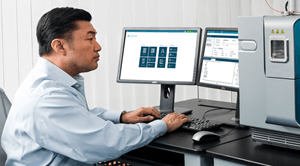
It’s a Point and Click World with the X500B QTOF System for Biologics Characterization
Did you know the X500B QTOF system makes point and click workflows for Biologics Characterization possible on your mass spectrometer? The newly-designed SCIEX OS software interface brings to life fluid navigation and ease of use so you can keep moving forward on your scientific discoveries. In fact, it’s so simple to learn and operate that you and your team can be up and running faster than you might expect.

PPCP Detection in Drinkwater is no Match for the QTRAP® 5500
SCIEX is no stranger to drinking water analysis, and the Environmental Compendium once again addresses the topic in an application note which covers LC-MS/MS with Fast Polarity Switching. Using the QTRAP® 5500, researchers were able to detect a large panel of Pharmaceuticals and Personal Care Products (PPCP’s) while performing fast positive/negative switching all from a single injection. Method details go the distance in this application note, as five experiments were called into action for comparison.

From Extraction to Cleanup—Measuring Mycotoxins from Cornmeal Products
When we look at emerging food trends for this coming year, you may be surprised to find that the US cornmeal market is making headlines as it is set to grow at a compound annual growth rate (CAGR) of two percent by 20201. This is the type of news that excites us, scientists, as it reminds us why we test for things like mycotoxins in cornmeal and the impact such analysis has on farmers and food manufacturers.
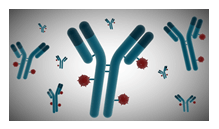
See How Easy It Can Be to Get Expert Results for Biologics Characterization
Learning a new mass spec system can be a daunting task. Aside from the opportunity costs of training new users, you might face the hassle of downtime, and the wait to get expert help when needed. The X500B QTOF system puts a new spin on biologics characterization workflows because it is so easy to learn and operate that you can be up and running much faster than you expect. Powerful new software tools dramatically streamline method development and data processing, to enable everyone in your lab to get expert results. It’s fast because it’s easy, even for new users.

Getting a Clean Match in Forensic Toxicology using LC-MS/MS
As a forensic scientist, what holds you back in the lab? It’s a question we often ask ourselves here at SCIEX, as product development depends on customer wants, needs, satisfaction, and ease of workflow. Ensuring evidence can withstand forensic scrutiny, for example, correlates with the integrity of testing procedures. Knowing this, how do you convince your staff to be confident in results, or convey technical data to a non-technical courtroom audience? If you have been left wondering how to get to the bottom of topics like these, check out the following toxicology toolkit. It’s a bundle of resources at your fingertips that includes a webinar led by Tania A. Saski Ph.D., Northwest Physician Laboratories, Bellevue, Using QTRAP® Technology to Provide Accurate Identification and Confirmation Beyond a Reasonable Doubt, and so much more

Looking to Quantify and Identify Pesticides in your Food Samples?
Visit our offices on any given day, and you are likely to discover researchers putting mass spectrometry to the test. The hum of the mass spectrometer is as common as conversations as scientists are tasked with developing methods that can be applied in real-world lab scenarios. In this case, André Schreiber SCIEX, Concord, Ontario, Canada, detailed, Comprehensive Quantitation and Identification of Pesticides in Food Samples Using the SCIEX UltraLC 100* and the SCIEX QTRAP® 4500 System.
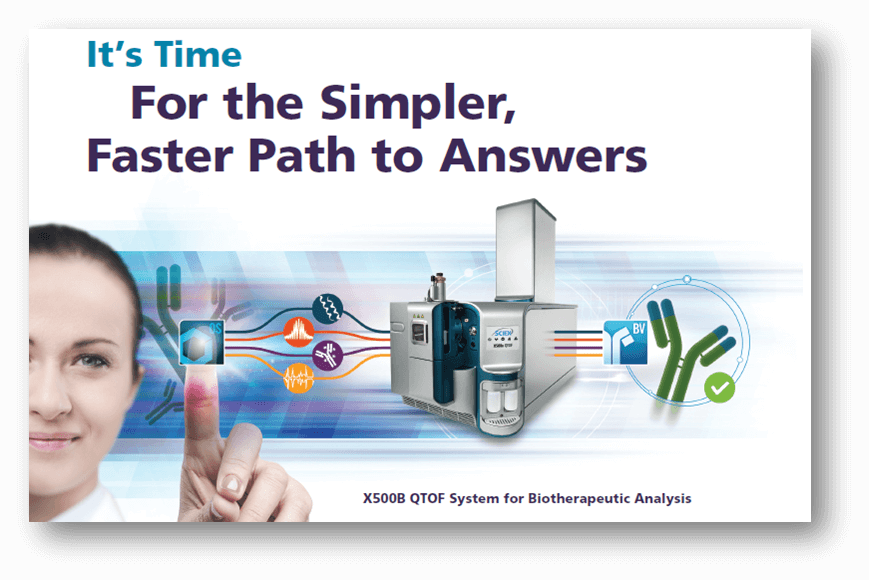
Discover the New X500B QTOF System, the Simpler, Faster Path to Biologics Characterization Answers
Have you ever wished for a compact instrument that delivers expert-level answers to your most complex biotherapeutic characterization challenges faster and easier than what you are doing now? At SCIEX, we recognize that even expert users want easier ways to perform daily characterization tasks and get great results every time. That’s why we set out to develop the X500B QTOF system: a robust and reliable new instrument and software solution that reduces complexity and simplifies biologics characterization workflows so every scientist can get expert-level results
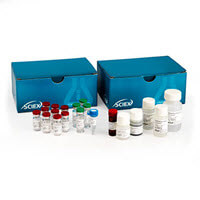
How to Achieve Higher Sensitivity with Hybrid Immunoaffinity LC-MS Assays
Protein-based biotherapeutics, including monoclonal antibodies (mAbs) and antibody-drug conjugates (ADCs) are a growing component of pharmaceutical companies’ drug pipelines. The growth of ADCs in particular is due to their ability to selectivity target and deliver a potent molecule to a cancer cell based on a specific tumor marker. In order to support this growing class of new drug molecules, robust and reliable bioanalytical methods are required. While ligand binding assays (LBAs) like ELISA have been the most popular platform for biotherapeutic quantitation, bioanalytical scientists have been increasingly adopting hybrid LBA/LC-MS methods in this area.

The Application of Research Grade MetabolitePilot™ Software for the Determination of the Catabolic Peptide Products of Exenatide
The stability of peptide and protein biotherapeutics directly impacts their pharmacokinetic profile, efficacy, and safety. It is therefore essential to characterize the stability of a given bio-therapeutic including both in-vivo and in-vitro catabolism, thereby...

LC-MS/MS Screening of 64 New Psychoactive Substances Using Dried Blood Spots
There is a lot you can tell from a droplet of blood as it’s snapshot of what could be present in a body at any given moment. In the following application note, LC-MS/MS Screening of 64 New Psychoactive Substances Using Dried Blood Spots, researchers did just...

LC-MS/MS Analysis of Emerging Food Contaminants
Ever wish you had access to the most up to date application methods but don’t know where to find them? The Food and Beverage Compendium is your one-stop resource for research notes ranging from pesticides, allergens, and antibiotics to mycotoxins, vitamins, and...